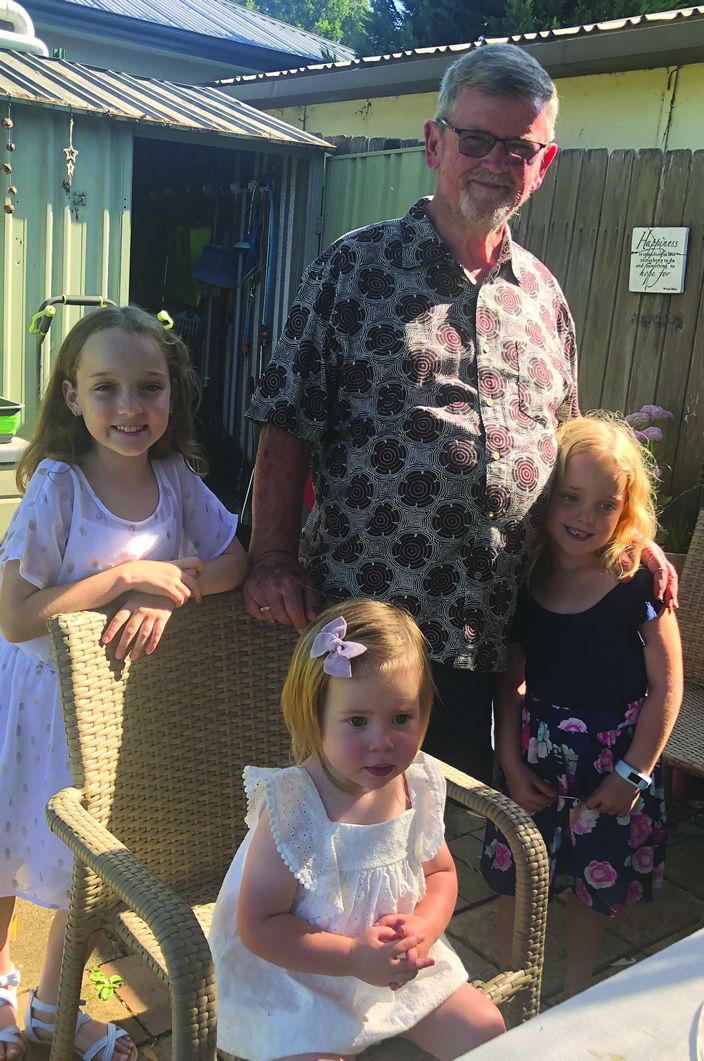
A dedicated English and history teacher since 1968 and a member of the IEU for 50 years, Harry Stephens has no intention of slowing down.
The 75-year-old works for the Australian Catholic University (ACU) as a practicum supervisor, and volunteers for Mercy Connect, a Sisters of Mercy-led organisation that matches teachers with migrant and refugee students who need support with literacy.
In his own words, Harry is “addicted to teaching”.
His addiction began when he graduated from the University of Sydney and started teaching at Liverpool Boys High School.
The students he taught there were among the best he ever encountered, he said. Many were from families billeted at Holsworthy Army Base, as their fathers were fighting in Vietnam.
Nevertheless, he left after only one year to move to Christian Brothers High School Lewisham, where he had also studied, as had his father before him.
In the mid-1970s, Harry was on the move again, this time due to a meteoric rise to principalship at St Raphael’s Catholic Central School, Cowra.
In the early 80s, he returned to Sydney at Christian Brothers St Patrick’s College at Strathfield, at a time when not many lay teachers were principals of Catholic schools. Harry became a curriculum coordinator instead, andthe position suited him as his two sons also attendedthe school.
His final career move was to Maronite College Holy Family in Harris Park, where he finished his formal teaching careerin 2011.
Close connection
As previously mentioned, Harry has remained closely connected to the profession, moving among schools around western Sydney for his position with ACU.
He observes practicum students take a class two or three times during a six-week period, speaks with students in their class and teachers at the school, and writes a report for the university.
He also has discussions with the trainee teachers. “I find it disappointing that sometimes I say to a preservice teacher, ‘If I see you in five years’ time, will you be a better teacher?’ and they reply, ‘I might not be a teacher in five years’ time’.
“That’s very different from when I started in the profession, you survived for 50 years as a teacher and that was it. I think this is part of the reason schools are struggling to get staff.
“A lot of the prac students have the qualities to be good teachers, and it’s disappointing to think they don’t see themselves as becoming teachers on a permanent basis.
“Once they spend a lot of time in school on their prac, they see the effort teachers have to put in these days, in terms of admin.
“Parts of the prac are not really positive for young people, and they wonder whether or not they can cope.”
Harry said that in his volunteer capacity with Mercy Connect, he was sitting in on a class with difficult students, and observed a young teacher close to tears.
“I wondered if anyone would sit down and have a talk with her.”
Harry said that when he started his career in the 1960s, things were probably too loose and more regulation was needed to protect students. His own prac, at Newington College Stanmore was “heaven” compared to what students experience today.
However, the regulation of teaching has gone too far, and young teachers like the woman he observed were being “lost in the shuffle”, he said, subjected to a great deal of pressure but often not cared for as individuals.
Founding father
Harry was one of the founding members of the IEU and was the first editor of the union’s professional journal, IE. He said the union brought certainty and predictability to the teaching profession.
“It was luck of the draw if you landed at a good school where they treated teachers well in the 1960s," he said.
“The IEU brings a degree of regulation,” he said.
“People work so hard in schools and they deserve the care and protection from an organisation like the IEU.”
He said the current Catholic campaign which, along with better pay, calls for more respect for teachers and more time to teach away from admin and data collection, was on the right track.
“We need to focus on a teacher’s ability to concentrate on the 20-odd people in front of them in class every day,” Harry said.







































































































































